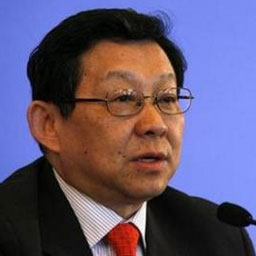Foreign investments, hot money come to China
(chinadaily.com.cn)
Updated: 2008-03-13 14:51
Updated: 2008-03-13 14:51
Foreign investments and international hedge funds, some of which are speculative hot money, are now elbowing into the China market. They're lured by the Chinese people's emerging consumption power, and expectations of the Chinese yuan appreciating higher.
 Chinese Commerce Minister Chen Deming speaks during a news conference December 12, 2007. [Agencies/files] |
The Ministry of Commerce said on Wednesday that China drew $18.13 billion in overseas investments in January and February, shooting 75.2 percent year-on-year.
Chinese Commerce Minister Chen Deming, who was promoted to the post late last year, said at a news conference in Beijing that the reason for the big increase of overseas capital in the first two months was due to the big increase in large-scale investing projects and a stronger yuan.
Chen's ministry, which oversees foreign trade and domestic consumption, said that during the first two months, investments from the European Union countries rose a whopping 109 percent, while investments from the United States increased 44 percent.
Wild expectations abroad that the yuan will continue to rise in value against major world currencies has led to money coming to China.
"When you bring US dollars to invest in China, you need to change it into the yuan. Naturally you would like your funds to enter China at an earlier date. Because, if you are late, the same amount of dollars will turn out to be less yuan bills," Chen told reporters.
China's foreign exchange administration, under the auspices of the People's Bank of China, the central bank, said in its latest report that the country's total foreign exchange reserve has reached nearly $1.59 trillion by the end of January, the world's largest.
China's currency, also called the renminbi, has been constantly rising in value. The People's Bank of China, set the medium parity trading price at 7.0970 against one US dollar on Thursday, a new record high. The yuan has gained 3 percent against the dollar in value since the beginning of 2008.
 A bank worker counts money at a China Construction Bank branch in Hai'an, Jiangsu. [China Daily/file] |
The sharp increase in the stock of hard currencies has triggered another round of concern on speculative hot money flowing into China, posing potential risks to China's financial system stability.
Wu Xiaoling, deputy head of the National People's Congress's Finance Committee, who was a former central banker, said that the American subprime crisis and the rising trend of the yuan's value will make world speculative funds come to the China market to seek profits.
When asked by reporters whether the hot money has arrived in the name of foreign direct investments, Minister Chen Deming said: "I can hardly tell their entering channels, and their volume. It belongs to the management of the foreign exchange administration."
Economist Suggests Quick Appreciation
Liang Hong, economist at the Goldman Sachs, argued in a written article published by a major Chinese financial newspaper on Thursday that Chinese monetary authorities should consider quickening the appreciation pace of the yuan, to fight domestic inflation, which approached to 8.7 percent in February.
Others have suggested another "one-off" big rise of the value of the yuan, possibly 5 percent against the greenback by the central bank, to block more hot money from flooding in.
Liang said in her article that "allowing a marked rise in the yuan value is the most opportune policy instrument to curb inflation, as well as rectify the foreign trade imbalance".
She also argued for immediate interest rate hikes to thwart inflation, otherwise the Chinese economy faces an increasing risk of a hard-landing.
|
|
|
||
|
||
|
|
|
|